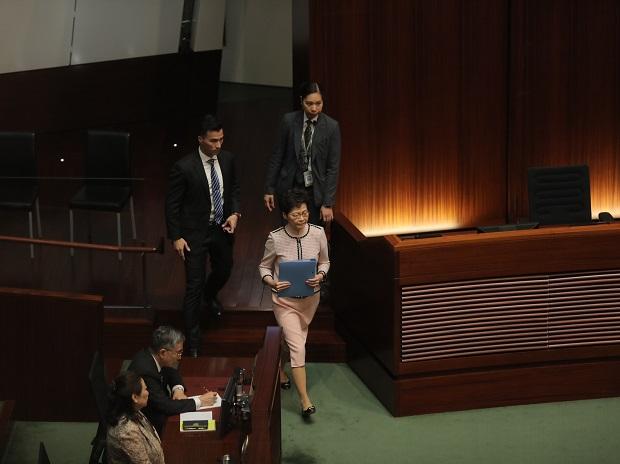
Beyond Hong Kong’s current political turmoil, a long list of economic problems await the city’s current and future rulers.
Carrie Lam, Hong Kong’s chief executive, on Wednesday unveiled more than 220 initiatives in housing, land supply and livelihood support, in a recognition that economic policy has a role to play in alleviating some of the city’s frustrations. She also acknowledged that Hong Kong entered a recession in the third quarter and warned of an “unprecedented” economic challenge.
That’s a start, though observers say the long-standing growth model -- as a low-tax, low-regulation entrepot for finance and trade -- has become an element in the political unrest, rather than the main solution.
Huge income inequality, markets controlled by insiders and a spiraling cost of living -- especially of housing -- are by now hallmarks of Hong Kong’s brand of capitalism, alongside the “world’s freest economy” label perennially awarded by The Heritage Foundation, a conservative-leaning U.S. policy group.
From using the city’s fiscal firepower to breaking the dominance of conglomerates and raising the standard of public facilities, there exists a range of proposals from economists and other experts for a way forward. In some areas, the government is already moving ahead. In others, a fundamental shift -- and the political consensus to make it -- is required.
Use Reserves to Tackle Housing
Many in the city question the political will of Hong Kong’s government officials to take bold, aggressive action in a range of policy areas. This criticism often arises in relation to the city’s HK$1.17 trillion ($149 billion) fiscal reserve, which some contend has grown steadily for years while the city’s problems were allowed to fester...READ MORE
No comments:
Post a Comment